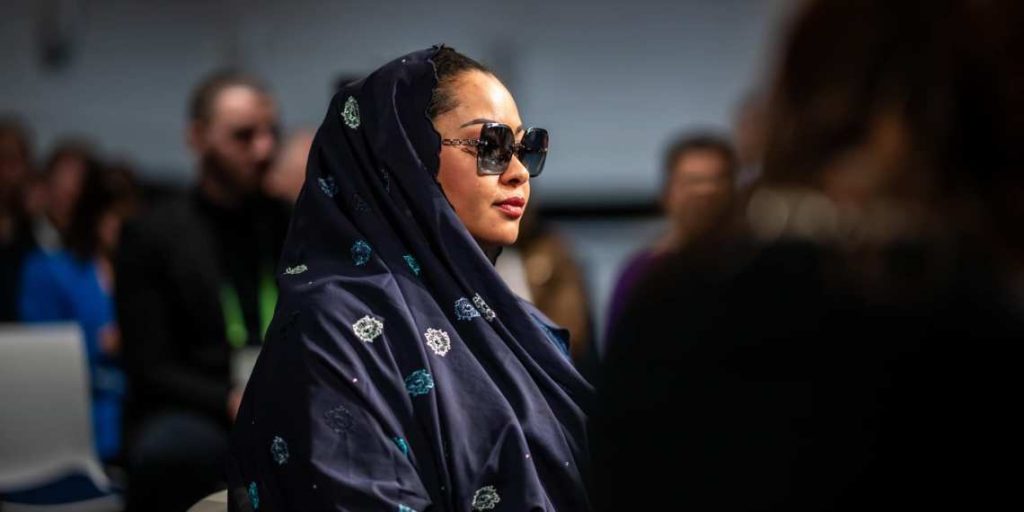
Daniel Otera
Senator Natasha Akpoti-Uduaghan has approached the Court of Appeal, Abuja Division, to challenge a contempt conviction and ₦5 million fine imposed by Justice Binta Nyako of the Federal High Court. The lawmaker representing Kogi Central insists that the 4 July 2025 judgment was “legally defective” and amounted to “a miscarriage of justice”.
The appeal, filed under suit number CA/A/2025/FHC/CS/384/2025, arises from a ruling that found Akpoti-Uduaghan guilty of contempt ex facie curiae a legal term referring to conduct considered contemptuous outside the courtroom. The decision followed a Facebook post she published on 27 April 2025, which made satirical reference to sexual harassment allegations within the Senate.
Although the post did not directly mention the pending case, Justice Nyako interpreted it as a breach of an earlier restraining order issued on 4 April 2025, which barred all parties from commenting publicly on the ongoing proceedings.
As part of the ruling, the senator was ordered to pay ₦5 million, publish a public apology in two national newspapers, and issue the same apology on her Facebook page.
Through her legal team led by Prof Roland Otaru, SAN, and supported by J.S. Okutepa, SAN; Dr E. West Idahosa, SAN; J.J. Usman, SAN; and M.J. Numa, SAN, Akpoti-Uduaghan is contesting both the procedural legality and jurisdictional competence of the trial court.
“The learned trial judge acted without jurisdiction when she assumed the power to summarily convict and sentence the appellant for an alleged contempt that occurred outside her court,” the legal team submitted in their appeal.
They argued that under Sections 72–75 of the Sheriffs and Civil Process Act and settled decisions of the Supreme Court, contempt ex facie curiae must be prosecuted separately, preferably before another judge, and must follow criminal trial procedures, including the requirement of proof beyond reasonable doubt and a right to fair hearing.
“There was no issuance of Form 48 or Form 49, which are procedural prerequisites in contempt proceedings under Nigerian law,” the legal team stated.
Citing the landmark ruling in Ojukwu v. Governor of Lagos State (1986) 1 NWLR (Pt. 18) 621, the appeal emphasised that Nigerian courts are bound to uphold due process before invoking contempt sanctions especially in matters that arise outside the courtroom. The Supreme Court held:
“In the area where the rule of law operates, the rule of self-help by force is abandoned. Once a dispute has been brought before the court, it is the duty of all parties, including the government, to allow the legal and judicial process to run its full course.”
This principle continues to shape the expectations around contempt proceedings in Nigeria’s judicial system.
The Akpoti-Uduaghan appeal also referenced a more recent example involving the Department of State Services (DSS) and suspended CBN Governor Godwin Emefiele, in which lawyers filed contempt proceedings against the DSS for allegedly flouting court orders. According to a Vanguard report dated 18 July 2023, the legal team referenced Forms 48 and 49 to press for the DSS to be held accountable under due process.
These precedents, her legal team argues, underscore the necessity for Nigerian courts to observe procedural safeguards, especially when interpreting social media posts as contemptuous.
“While courts have the power to protect their proceedings, they must not do so at the expense of constitutional rights,” said Abuja-based constitutional lawyer Kelechi Nwakali, speaking with The Journal. “Due process, jurisdiction, and fair hearing are the pillars of lawful contempt proceedings.”
Furthermore, the appeal contends that the ₦5 million fine imposed by Justice Nyako was never requested by the applicant in the contempt motion of the Senate Committee on Ethics, Privileges and Public Petitions, chaired by Senator Neda Imasuen.
“The lower court descended into the arena of conflict by granting relief not sought, and this violates the appellant’s right to a fair hearing,” the appeal argued.
The underlying dispute began with the Senate’s referral of Akpoti-Uduaghan to the ethics committee over her social media post. Her subsequent suspension by the Senate prompted the original suit, filed as FHC/ABJ/CS/384/2025, in which she sought to challenge the legality of the disciplinary process.
Respondents listed in the appeal include the Clerk of the National Assembly, the Nigerian Senate, Senate President Godswill Akpabio, and Senator Neda Imasuen. As of the time of filing this report, no hearing date has been scheduled.
Legal analysts believe the outcome of this case may help define the boundaries of digital speech, parliamentary discipline, and judicial discretion in Nigeria’s democracy.
A 2022 report by digital rights organisation Paradigm Initiative warned of a trend of judicial overreach into online expression across the country. The report documented over 15 cases between 2020 and 2023 where Nigerians were arrested or prosecuted for social media posts perceived as critical of public officials.
“There have also been multiple reports of arrests arising from the use of social media platforms,” the report noted, citing the case of Babatunde Olusola, a student detained over a parody Twitter account, and the arrest of several young Nigerians during the #EndSARS protests in October 2020.
